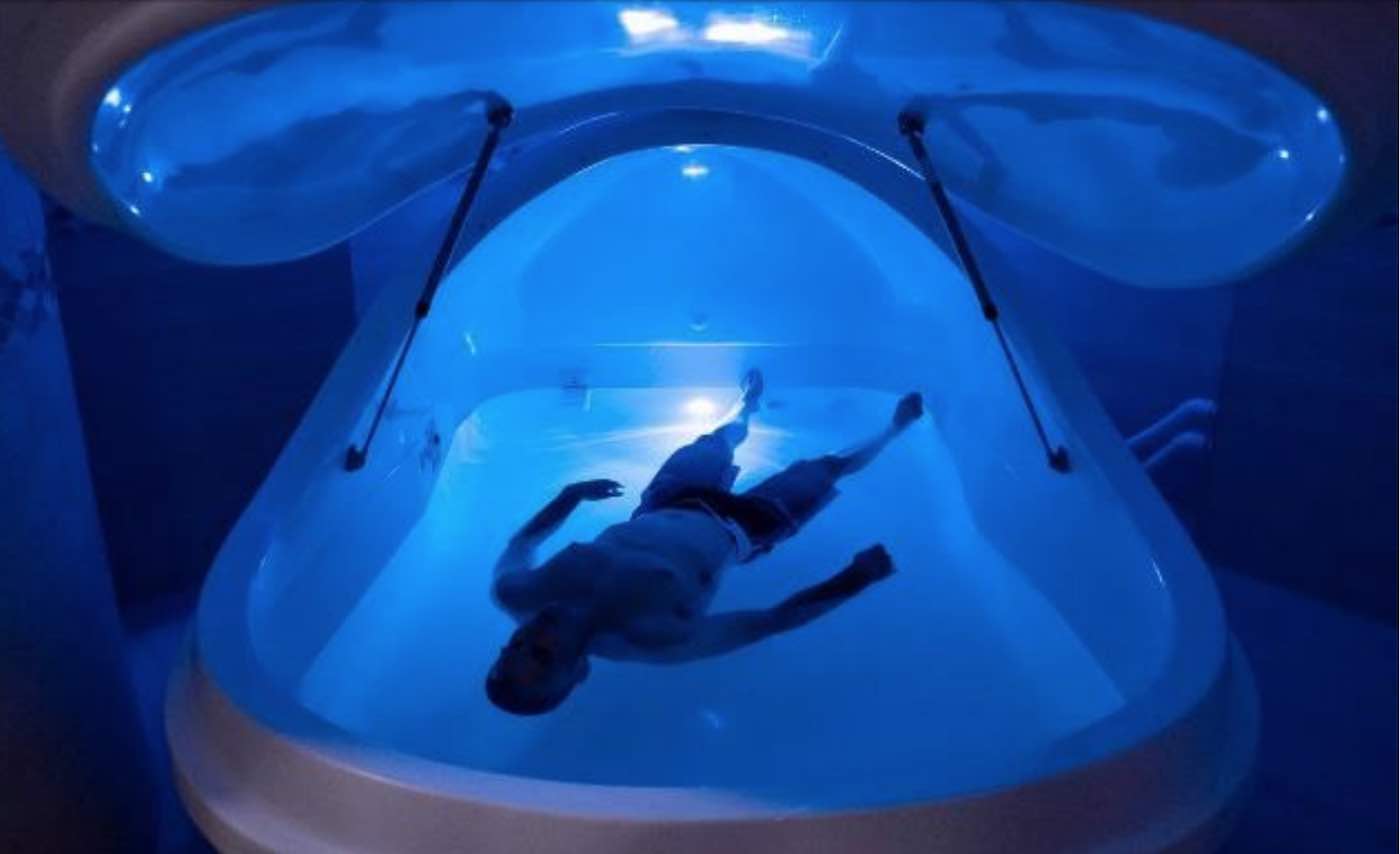With flotation therapy emerging as a trailblazing new form of treatment for PTSD, these clinics have given away thousands of free therapy sessions to veterans and military members—and are set to give away thousands more.
Since 2015, True REST Float Spa has given away almost 3,000 free float sessions to US active-duty military and veterans.
To show further support for the sacrifices made by men and women who serve in the US military, the spa has also designated every 11th day of the month—every month—as US Military Appreciation Day, and they offer free, 60-minute floats to any active-duty military member or veteran.
Calling itself the world’s largest floatation therapy brand, with 112 locations and 15 more opening this year, True REST Float Spa has challenged the Department of Veterans Affairs to seriously examine floatation therapy as a covered treatment for PTSD and depression because they believe it reduces the need for other methods of relief, which are not as holistic.
PTSD, depression, panic disorder, social anxiety disorder, stress, and other pain-related conditions have been on the rise in the military community. Rather than treating them with medication, however, clinical studies have shown that float therapy in a sensory deprivation pod is an impactful alternative for people with such conditions.
When a person floats, they lie absolutely still on top of a specialized Epsom salts water solution with zero stimulation. There are no distractions such as movement, sound, light, taste, touch and smell, so areas of the brain responsible for these activities are essentially turned off. The water temperature is calibrated where the air, water and body match perfectly. Because floating creates a weightless sensation, the spinal cord receives respite as well.
Dr. Justin Feinstein, director of the Float Clinic and Research Center at the Laureate Institute for Brain Research, described at the 2018 Float Conference how he had conducted a randomized controlled trial of 20 healthy patients and 37 patients who suffered from anxiety across the spectrum, many who suffered from co-morbid depression (in tandem with another illness).
The patients were randomly selected for two experiences: a float therapy session or watching a DVD of BBC Earth. Every patient did both selections for 90 minutes. Feinstein measured EEG brain waves, electrocardiogram waves and blood pressure during the float and the DVD. He took blood samples before and after each experiment.
What he discovered after the study was that all patients experienced an increase in serenity—or mood—and relaxation post-float; muscle tension and anxiety significantly decreased post-float, dramatically more than those who participated in the Earth study. Additionally, during the float, patients realized improvement with their high frequency heart rate variability, and diastolic blood pressure improved.
Feinstein said, “This is the anti-anxiety effect of floating.” He was also able to state with 95% confidence that the reduction in the patients’ stress, anxiety, and serenity levels continued up to 20 hours post-float.
In April, the National Institute for Health via the National Center for Complementary and Integrative Health funded the first ever floatation therapy research grant. This R34 grant will allow Feinstein to further study the long-term effects of floating on patients with anxiety and depression and research this therapy as an intervention approach for anxiety, addiction and anorexia.
“We must look at alternative wellness therapies … Clinical research and published studies, time after time, prove the pain-relieving effects and mental wellness benefits of floatation therapy,” said True REST Float Spa CEO James Rowe.
In May, the U.S. House of Representatives passed H.R. 2359: Whole Veteran Act which would direct the Department of Veterans Affairs to study alternative health services that it currently offers and determine the amount it would cost in order to expand those services throughout the Veterans Health Administration. They want veterans to try a combination of old and new treatment methods, and use treatments like yoga, meditation and acupuncture before drugs. The bill is awaiting the Senate’s vote.
If This Story Floats Your Boat, Be Sure And Share It With Your Friends On Social Media…




















